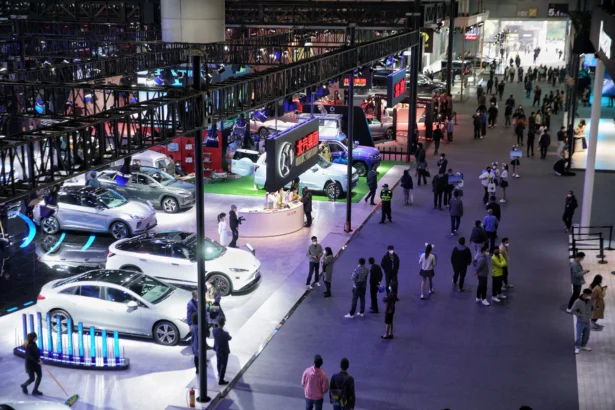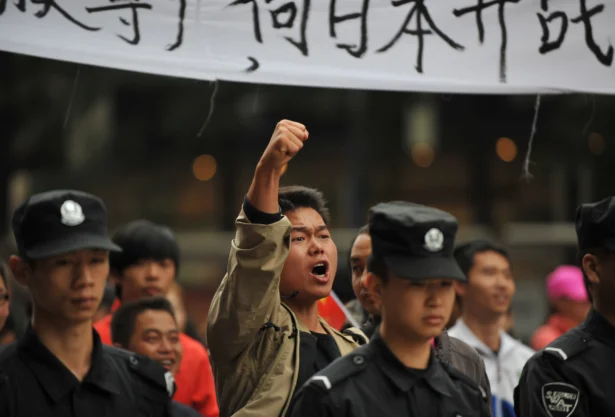After Japanese air-conditioning giant Daikin and technology giant Sony left China, Japanese media reported that Mitsubishi Motors may cease production in China.
In recent years, Japanese companies have left China one after another. Experts believe that as geopolitical tensions intensify, the”political cold yet economic hot” relations between Japan and China will change. Japan’s key supply chains will gradually separate from China, derisking in the short term and decoupling from China in the long term.
Mitsubishi Motors has reported that it may end its car production in China and is discussing exiting with local joint venture partner Guangzhou Automobile Group (GAC). Mitsubishi Motors responded that the company is “discussing future plans” with the shareholders of the joint venture, and “no decision has been made yet.”
As early as April, Mitsubishi Motors said this year that weak sales caused Mitsubishi a loss of US$78 million. In 2022, GAC Mitsubishi’s sales were less than 32,000 vehicles in China, which was about half of 2021. In July, GAC Mitsubishi laid off employees to cut labor costs to boost business, and its Outlander SUV was discontinued in China due to poor sales.
GAC’s new car manufacturing plant in Changsha, Hunan Province, had already stopped production in March due to declining demand.

According to data from research company MarkLines, China’s passenger car sales reached more than 20 million units in 2022, of which Chinese brand sales accounted for 50.7 percent, an increase of 5.2 percent from the previous year. The market share of Japanese companies was 18.3 percent, a decrease of 2.8 percent.
If Mitsubishi completely stops production in China, it will be another major Japanese company that has withdrawn from China following Sony and Daikin. Previously, Honda announced that it would consider building a supply chain outside China to reduce its reliance on the country. Mazda also said it was considering moving production out of China.
Data released by Teikoku Databank, a Japanese research company, shows that between 2020 and 2022, the number of Japanese companies in China dropped from 13,600 to 12,700. The total number hit a 10-year low. Compared to that before the epidemic, it’s a decrease of approximately 7 percent. Since the previous survey conducted in February 2020, a total of 2,176 Japanese companies have left China, and 116 companies have gone bankrupt and ceased operations.
De-risking
Li Shihui, chairman of the Japan Institute in Taiwan and professor at the School of International Affairs at National Chengchi University, told The Epoch Times: “There’s a severe lack of transparency in the Chinese Communist Party’s (CCP) labor regulations and domestic policies or systems, making Japanese companies easily affected by politics and causing them operational problems and difficulties.”
Wang Xiuwen, an expert at Taiwan’s Institute of National Defense and Security, pointed out an important historical pattern: “When the Japanese government’s policies offend the political interests of the CCP, the CCP often resorts to stirring up ‘anti-Japanese’ nationalism and targets Japanese companies or Japanese civilians in China. There have been several lessons in the past decade.”

Mr. Li also emphasized that the Japanese found that the CCP did not comply with the Regional Comprehensive Economic Partnership regulations, especially on intellectual property rights. Regarding international trade, Japan believes that the CCP is not a country that abides by rules.
Ms. Wang said that in addition to the impact of the U.S.-China trade war in recent years, China’s business environment has become worse than before.
Since this year, the CCP has tightened control, monitoring foreign companies and arresting foreign investors and some employees of Japanese companies in China.

“The CCP arbitrarily arrests foreigners [especially Japanese] on the grounds of violating national security or the Anti-espionage Act, which causes most Japanese companies and manufacturers to feel that their personal safety is not guaranteed, and they have to evacuate Japanese employees from China as soon as possible,” Ms. Wang said.
Amid the ongoing tensions between China and the United States, although Japan stands on the side of the United States, its economic relationship with China is closer than that of the United States. Mr. Li believes, “the current direction that Japan and Europe are heading towards is probably long-term decoupling and short-term de-risking [from China].”
He explained that de-risking means gradually moving some key supply chains that Japan considers to be sensitive from China. “For some lower-level daily necessity supply chains, Japan has not said that it will immediately move them out of China.”
Ms. Wang said: “The Japanese government’s policy is to accelerate the evacuation of Japanese manufacturers from China.”
“With fewer Japanese companies that could be ‘held hostage’ by the CCP, the Japanese government may no longer be tolerant of the CCP. On the surface, Japan will maintain friendly diplomatic relations, but assist the United States in East Asia and in geopolitics in the Indo-Pacific region. It will happen very soon.”
Mu Qing and Yi Ru contributed to this report.
From The Epoch Times


